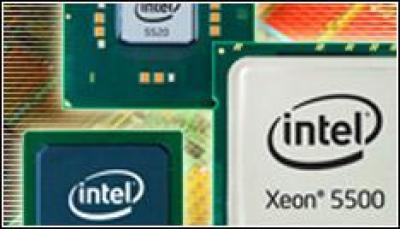

Chip manufacturer Intel and health insurance provider Aetna say the preliminary results of a recent field study found that heart failure patients benefited from working with a computerised remote health management system
In a joint study, 164 out of 315 Aetna Medicare subjects suffering from chronic heart failure (CHF) were able to avoid some hospital stays by using Intel’s telehealth system called Intel Health Guide. The preliminary results of the study were released June 9 in Las Vegas. The final results are due later this year.
The service combines the company’s PHS6000 in-home patient device with its Health Care Management Suite, an online platform that allows clinicians to monitor patients and manage care remotely via videoconferencing.
Randall Krakauer, MD, Aetna’s national Medicare medical director, shared the preliminary results from the Aetna-Intel study on 9 June in Las Vegas at the America’s Health Insurance Plans (AHIP) Institute 2010 conference.
During six months of monitoring, patients recorded their medication intake, exercise activities and time in the hospital online using the Intel Health Guide. Through the cloud interface, patients then send their data to an Aetna nurse case manager remotely.
Remote health management from home can reduce hospitalization and readmission rates and make patients’ extended care more cost-effective, according to Intel.
“This study demonstrates how the Intel Health Guide can be used to address the challenges of chronic care management,” Patricia Perry, vice president and director of product delivery for the Intel Digital Health Group, wrote in a statement. “As the number of patients with chronic conditions continues to rise, we must adopt new and innovative remote health management technologies that move us toward a more proactive care model.”
Using Intel Health Guide, patients can keep track of vital data such as weight and blood pressure in their home, according to Aetna’s Krakauer. “Combined with frequent discussions with Aetna nurse case managers, we believe that members engaged in remote health management will be more successful managing their health,” he wrote.
On 26 May, Intel announced it will expand the Intel Health Guide into Europe. General Electric markets the remote-management system in the United States.
The Intel Health Guide is a white box with a touch screen on the outside cover. Inside the unit runs on a 3GHz Pentium 4 CPU. Patients can choose among Webcams from Microsoft, Creative Labs and Logitech and headsets from Plantronics or Microsoft.
During the exchange of data, the system protects privacy by using 128-bit Secure Sockets Layer/Transport Layer Security (SSL/TLS) and VPN encryption.
American space agency prepares for testing of Boeing's Starliner, to ensure it has two space…
As UK and Europe develop closer military ties, European Commission says it will invest €1.3…
Zuckerberg seeks to revive Facebook's original spirit, as Meta launches Facebook Friends tab, so users…
Notable development for Meta, after appeal against 2021 WhatsApp privacy fine is backed by advisor…
First sign of shake-up under new CEO Lip-Bu Tan? Three Intel board members confirm they…
Trump's nominee for SEC Chairman, Paul Atkins, has pledged a “rational, coherent, and principled approach”…